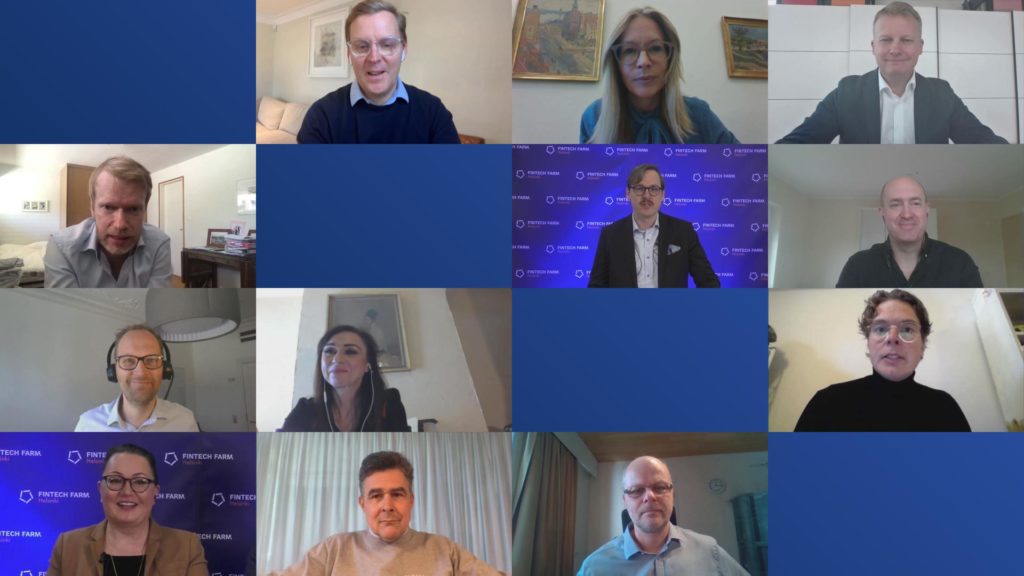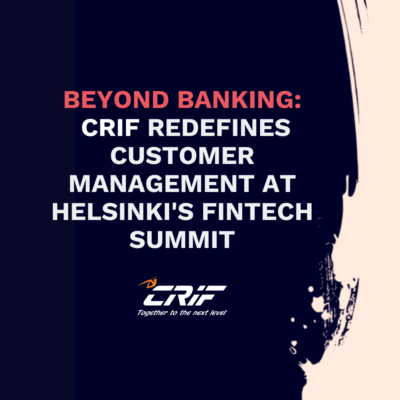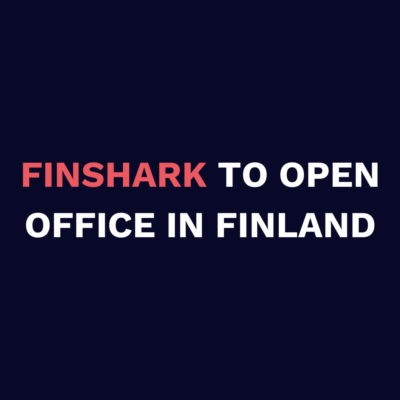On May 7th, Fintech Farm brought the first-ever virtual Future Digital Finance forum to attendees across the Nordic Region. The event, Fintech in Corporate & Business Banking was powered by Brella and had around 150 sign-ups. The topics presented in the event covered the whole width of business banking – from entrepreneurial problems to large corporate cases.
The day got started by Peter Crawley from Citi, who spoke about how Covid-19 is impacting corporate themes in banking, starting from the way of working. Peter highlighted the importance of relevance, no matter what you do – relevance is everything and he spoke about transparency, scale, pricing and speed. Peter also talked about the importance of fintech partnerships and the changing nature of the payments landscape.
Sara Öhrvall from Sweden was our second presenter and she had prepared an incredible talk on the role of artificial intelligence in customer experiences and how it could potentially be used – from predicting customer preferences utilizing social media data to having AI Banking Advisers. She gave insight into SEBs journey utilizing Virtual Assistants, from training them to speak Swedish to them actually offering more personalization to customers. Sara also touched the point of why using humanlike AIs and what moral implications are linked to them.
Our third speaker for the first part was Indrek Nuume from LHV, a bank originated in Estonia, now operating also in London. Indrek told the history of LHV and touched some of the larger changes in banking, naming machine learning, social responsibility and climate change as well as Covid-19. He also mentioned areas of traditional banking that remain undisrupted and spoke about the needs of Fintech companies – such as credit & liquidity and how LHV has been able to service these companies is inventive ways.
Esko Penttinen, Professor of Practice at Aalto University and Chairman of XBRL Finland spoke about the methods paving the way for a more real-time economy and about how structured data improves processes. As an example, he used invoiced and the amount captured versus the amount used for processes currently. Esko also spoke about the different types of artificial intelligence and the importance of explainability for safety and responsibility.
Esko’s presentation was followed up by Tuomas Autero from Nordea who spoke about Nordea’s approach to platform opportunities by giving examples of how the company serves different market segments. He also highlighted how their services can create value to them as a company but also to the larger public through the data insights they create when analyzing human interactions through and via their banking products, such as cards. Sharing the example of the Corona Baronamiter, he showed how Nordea is supporting the Finnish government when thinking about the exit plan from the Covid-19 crisis. It was highlighted that data gives companies new opportunities to act responsively and give back to the community they function in.
Joining in from Berlin, Scott Donnelly from Ferratum Group, specifically CapitalBox, explained the company history and information on their customer profiles that come from a wide range of industries. Their business has very high retention, as over 70% of customers are returning customers, credited a bit to the simplicity and convenience level of the customer experience. Starting off as a fintech one of their competitive edges is their lack of legacy systems and the ability to re-invent themselves. But the greatest advantage is that they are working to become the only Pan-European fintech SME lender, and there is no one looking to become that wide. So post Covid-19 their plan is to enter new geographies, bring new products to market and build new partnerships.
Following the break, it was the turn of Anders Schwarz Lausten from Danske Bank. Anders spoke about their Business Banking platform District. The aim of the platform is to deliver an excellent customer experience that serves all customer needs, even lending. To support this, the next step is to create a marketplace that has simple products integrated into the service with third parties offering their services as well. Naturally, this is a big project but can provide huge opportunities to all involved. Overall, during his speech, Anders covered the development plans of their platform, the reasons for the chosen path and various business advantages in the regions where Danske Bank operates.
Small and medium-sized businesses are the area traditionally under services in banking. So this section is also what we wanted to address in our event. Our host Johanna Andersen was joined by Markus Sarja (OP), Antti-Jussi Suominen (Holvi) and Helene Panzarino (Fractal Labs) to discuss success stories in this section, how to serve them better, what is needed and what opportunities are there available in this sphere. We also covered how services can really help SMEs struggling now.
The last session of the day belonged to Timo Hotti from OP, who spoke about creating a network of trusted data to function as the backbone of next-gen financial services. Utilizing blockchain, self-sovereign digital identities allow actors to share verifiable data about themselves in business transactions. Timo introduced the audience to Findy – the initiative to form a new national network of trusted data in Finland. He introduced the audience to various cases where Findy could work, starting from education to retail and trade and gave a high-level overview of the architecture behind the invention, finally providing a vision of a digital bank for a digital customer, utilizing the elements discussed earlier.
Overall the event was a success! The majority of the presentations were delivered form home without problems and more than anything, they were relevant for the time period and new in form. Being our first virtual event we see development areas, especially in our ability to deliver more interaction in a virtual format but we take this as a great starting point! Thank you to all our speakers, to all our attendees and to our sponsors without whom our work would not be possible.
Remember to join our insider list to stay updated on future events.



